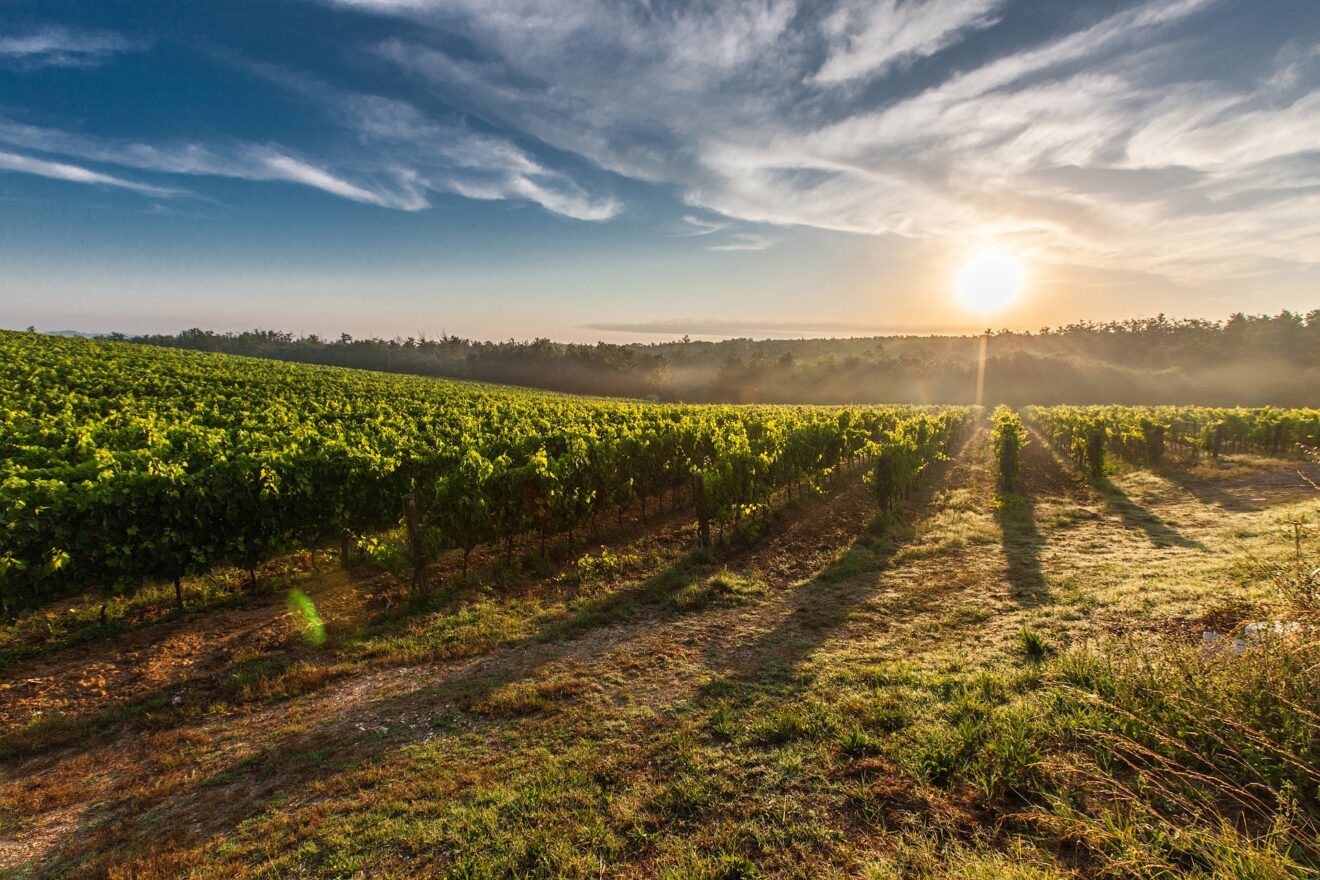Sign up for ProChef SmartBrief today, free.
Efforts to adopt more climate-friendly practices and reduce waste are gaining momentum throughout the food and beverage industry, and many winemakers and other beverage producers are setting an example with their sustainability plans. Bars and restaurants can help fuel the growing movement by seeking out products from producers that prioritize sustainability and helping consumers understand the importance of these choices.
Planting the seeds for the future
Wine, beer and spirits begin in the fields where grapes and grains are grown, and an increasing number of wineries, brewers and distillers are investing in farming practices designed to maintain the health of the land. Regenerative farming is one of the most important steps growers can take to increase the sustainability of their operations, according to Dr. Taylor Reid, an assistant professor in the Culinary Institute of America’s School of Liberal Arts who teaches courses in food systems sustainability and applied food studies. Regenerative farming practices, which include crop rotation, integration of livestock and minimizing damage to the soil, “increase … carbon storage in the soil while also increasing the quality of the products grown,” Reid said.
Removing synthetic fertilizers is also an important element of regenerative farming, according to Dustin Rogge, a professor of hospitality management at the CIA’s Greystone campus in California. Rogge, who lives in the heart of wine country in Sonoma County, said he sees firsthand how fertilizers increased algae blooms in rivers and degrade the soil.
Putting sustainable wines and beverages on tap
Researching which wineries and other producers are using sustainable farming practices – or sourcing their ingredients from farms that do – is an important step for beverage directors and other hospitality professionals looking to promote sustainability.
“As a beverage professional, your buying power has a powerful impact on producers’ practices,” Rogge said.
Labels such as Organic and Fair Trade can offer a good starting point for finding sustainable beverage brands to stock, but “asking purveyors directly about their sustainability practices can get you more nuanced answers about their efforts while also communicating to these companies that sustainability is important to their customers,” Reid said.
Beverage companies of all sizes are starting to make meaningful sustainability commitments, Reid noted, but he also encouraged beverage professionals to seek out options from their own backyards.
“I am a big proponent of supporting local farms, local producers and local companies. There are important aspects to sustainability that go beyond just the environment, and one of these is being a good community citizen,” he said. “I love that people are exploring local and foraged products in drink development, and what could be more creative? Sure, we can buy organic limes, and that is great, but are there products being grown by local farmers that might make more exciting and authentic beverage offerings?”
In addition to paying attention to what goes into making a beverage, beverage managers should also consider how products are packaged.
“Kegs are cool,” Rogge said. “Buying wine, beer and cider in kegs reduces the packaging, waste and transportation impacts of beverage purchases. Moreover, they provide operators with better pour costs than bottles and cans.”
Keeping the movement going
The enthusiasm many beverage producers and hospitality professionals have shown for making sustainable practices the new normal is encouraging, but there is still much work to be done. Staying abreast of what is happening in the industry can help beverage pros make informed decisions and educate consumers.
“So much of this is new, I think the best thing that professionals can do is to begin educating themselves on regenerative farming and sustainable beverages,” Reid said.
The Regenerative Viticulture Foundation and the Regenerative Organic Alliance provide resources for learning about regenerative agriculture, and Reid encouraged beverage pros to keep seeking and sharing new sources of information.
“There are some really exciting things happening out there and there may be no industry in the world that is more loquacious than the beverage industry,” he said.
“Beverage professionals are always talking with their customers and clients about their own ideas and experiences, so the more time they spend reading, researching and exploring sustainable solutions within the industry, the more their clients are bound to know about it. Savvy individuals and companies are always early adopters. They anticipate change and get out in front of it. We can already see that happening in the beverage industry and that’s because there are big changes coming.”
Read more like this from SmartBrief:
- Beverage pros weigh in on the alcohol-free beverage trend
- Q&A: CIA faculty discuss challenges, opportunities facing the culinary industry in 2023
- SmartSummit: How chefs and restaurants are working toward a more sustainable food system
_____________________________________
If you liked this article, sign up for SmartBrief’s free email newsletter from The Culinary Institute of America. It’s among SmartBrief’s more than 250 industry-focused newsletters.
